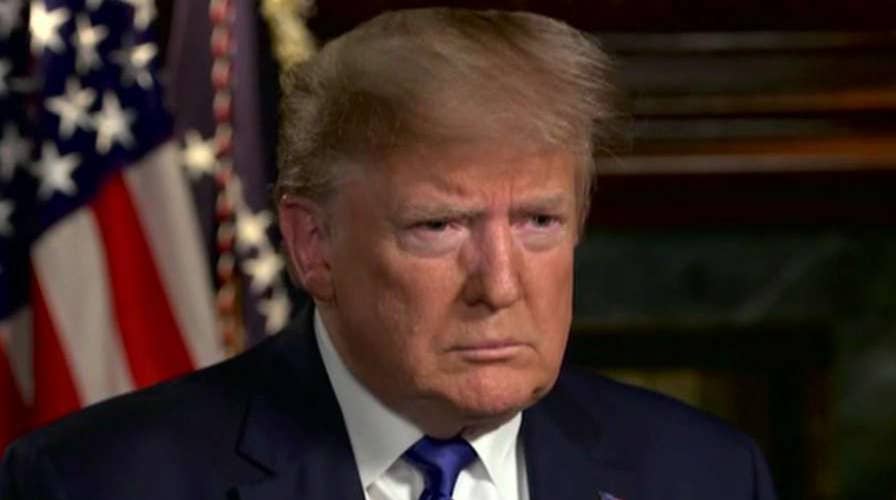President Trump sits down with Sean Hannity for Super Bowl interview
President Trump discusses Senate impeachment trial, Trump administration's accomplishments, State of the Union plans and Democratic presidential contenders with Sean Hannity.
Following orders from the Department of Homeland Security (DHS,) airline officials are now asking all U.S.-bound passengers if they have recently visited mainland China amid the ongoing coronavirus outbreak. The new directive coincides with President Donald Trump’s comments that American authorities had “pretty much shut it down,” regarding the potential spread of the viral disease, in an interview with Fox News’ Sean Hannity.
“We pretty much shut it down coming in from China,” President Trump told the “Hannity” host on Sunday. “But we can’t have thousands of people coming in who may have this problem, the coronavirus. We’re going to see what happens, but we did shut it down, yes.”
AMERICAN AIRLINES PASSENGER WEARING GAS MASK REMOVED FROM FLIGHT
President Trump did not elaborate on the specific measures U.S. authorities have taken to "shut down" further transmission of the virus, but officials are, indeed, taking a number of measures to protect against the further spread of the virus in the United States.
The DHS has issued a restricted travel edict to protect Americans from exposure to the deadly virus, ordering airline authorities to ask all travelers on international flights bound for the U.S. if they have recently been in mainland China, Reuters reports. Now, airline representatives are expected to “scrutinize” people’s passports amid concerns related to the ongoing outbreak.
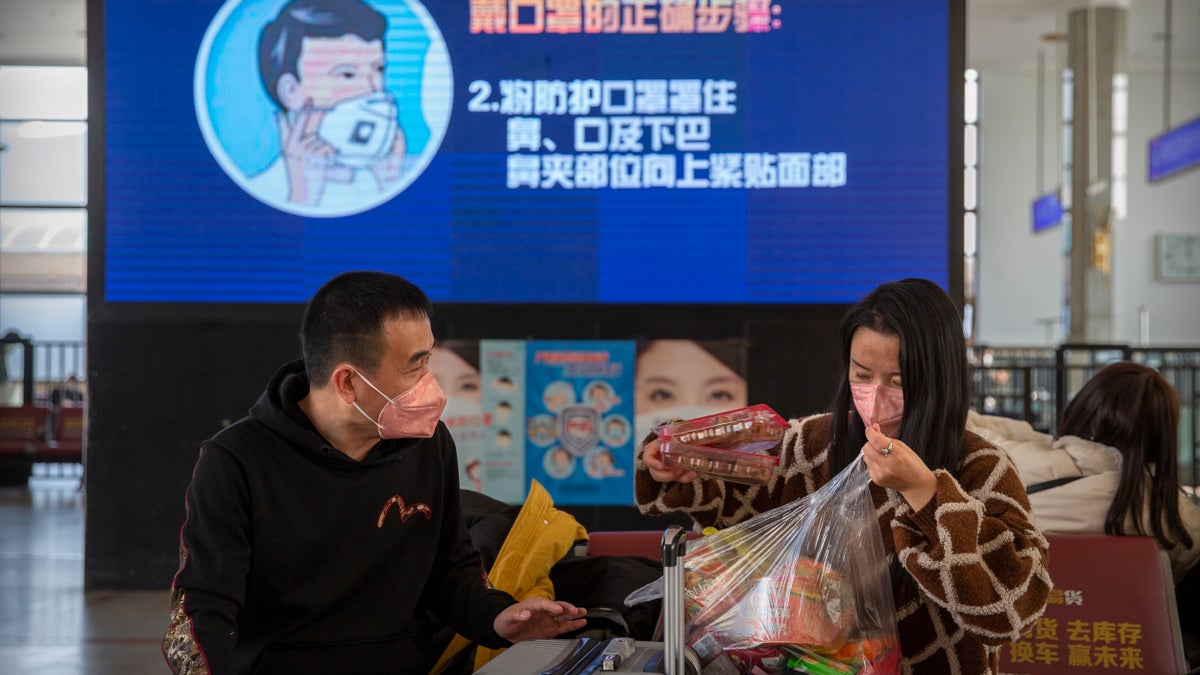
Travelers wear face masks as a screen shows a video about the proper way to wear a mask at the Beijing Railway Station in Beijing, Friday, Jan. 31. (AP Photo/Mark Schiefelbein)
In addition, U.S. citizens who have visited the Hubei province, home of the city of Wuhan, which is at the center of the outbreak, within 14 days of their return to America, will be subjected to a mandatory quarantine of up to 14 days, the DHS said.
Citizens who have traveled through other areas of mainland China within 14 days of their return stateside will also receive proactive entry health screenings and up to 14 days of self-quarantine, as their health is monitored. This is to ensure they do not have the virus and do not pose a risk to the public health.
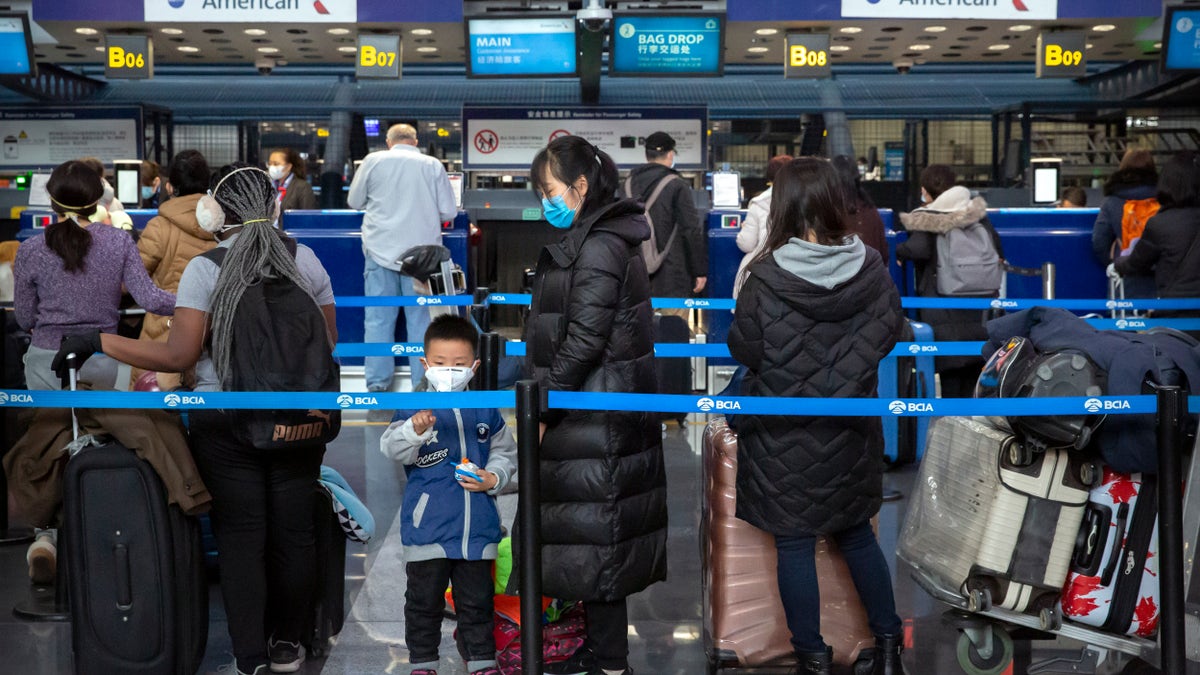
Travelers wearing face masks line up to check in for an American Airlines flight to Los Angeles at Beijing Capital International Airport in Beijing on Jan. 30. (AP Photo/Mark Schiefelbein)
Meanwhile, foreign nationals (other than immediate family members, American citizens, permanent residents, and flight crew) who have been in China within 14 days of their arrival to the U.S. will be denied entry into the country, the DHS said.
FOLLOW US ON FACEBOOK FOR MORE FOX LIFESTYLE NEWS
As of Monday morning, 17,205 people have been infected with the virus, which has claimed the lives of 361 others.
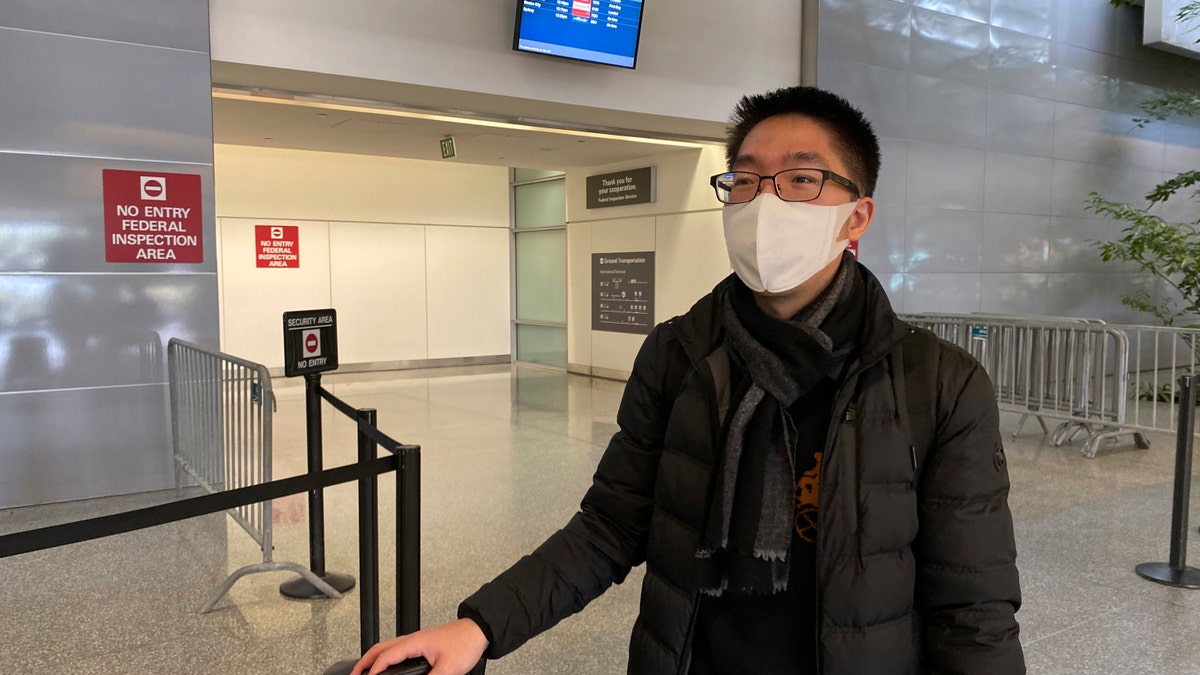
In this Wednesday, Jan. 29 photo, traveler Bill Chen stands outside of customs at San Francisco International Airport after arriving on a flight from Shanghai, where he was conducting business and visiting family over the Lunar New Year holiday. (AP Photo/Terry Chea)
To date, just 11 American airports are authorized to accept incoming flights from China amid the viral outbreak. Aircraft arriving from China are being directed to the following air hubs: Newark Liberty International Airport (EWR) in New Jersey, Dallas/Fort Worth International Airport (DFW) in Texas, Detroit Metropolitan Airport (DTW) in Michigan, John F. Kennedy International Airport (JFK) in New York; Chicago O’Hare International Airport (ORD) in Illinois; San Francisco International Airport (SFO) in California; Seattle-Tacoma International Airport (SEA) in Washington; Daniel K. Inouye International Airport (HNL) in Hawaii; Los Angeles International Airport in California; Hartsfield-Jackson Atlanta International Airport (ATL) in Georgia; and Washington-Dulles International Airport (IAD) in Virginia.
At the 11 airports receiving flights from China, the Centers for Disease Control and Prevention (CDC) is working with the DHS, Transportation Security Administration (TSA) and individual airlines to identify potentially infected persons.
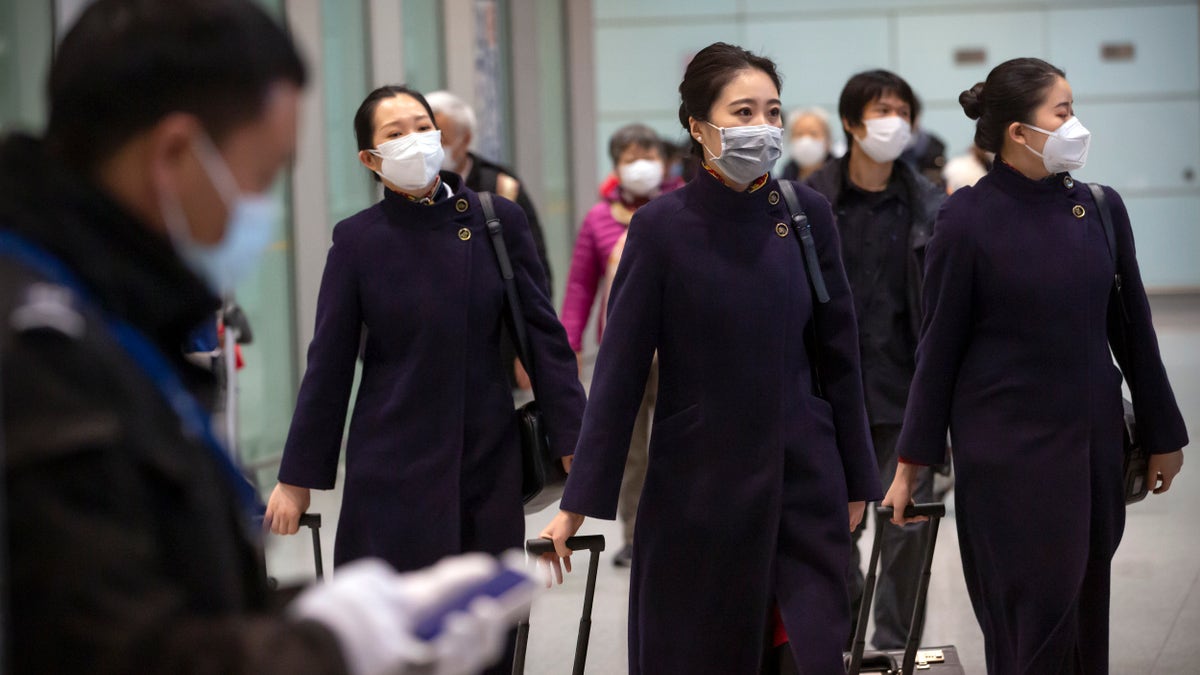
Flight crew members wearing face masks walk through the international arrivals area at Beijing Capital International Airport on Jan. 30. (AP Photo/Mark Schiefelbein)
“While the overall risk to the American public remains low, funneling all flights with passengers who have recently been in China is the most important and prudent step we can take at this time to decrease the strain on public health officials screening incoming travelers. These steps will also expedite the processing of U.S. citizens returning from China, and ensure resources are focused on the health and safety of the American people,” DHS Acting Secretary Chad F. Wolf said of the news.
“We realize this could provide added stress and prolong travel times for some individuals, however public health and security experts agree these measures are necessary to contain the virus and protect the American people,” Wolf continued. “To minimize disruptions, CBP [Customs and Border Protection] and air carriers are working to identify qualifying passengers before their scheduled flights. Once back in the U.S., it’s imperative that individuals honor self-quarantine directives to help protect the American public.”
CLICK HERE TO SIGN UP FOR OUR LIFESTYLE NEWSLETTER
As of Monday morning, there were 11 confirmed cases of the coronavirus in the U.S. Six cases have been reported in California, one in Arizona, one in Washington, one in Massachusetts and two in Illinois. No deaths have been reported in the U.S. and 99 percent of cases still remain in China.
Major American carriers, including United Airlines, Delta Airlines and American Airlines, have suspended all service to mainland China amid the ongoing outbreak.
Officials at the CDC have advised travelers to avoid all nonessential travel to China. The U.S. State Department raised its China travel advisory to "Level 4: Do Not Travel."
In an exclusive interview with Hannity during the Super Bowl LIV pregame show, President Trump voiced confidence in his administration’s swift response in addressing the threat of the coronavirus.
“We pretty much shut it down coming in from China,” Trump told the “Hannity” host. “But we can’t have thousands of people coming in who may have this problem, the coronavirus. We’re going to see what happens, but we did shut it down, yes.”
CLICK HERE TO GET THE FOX NEWS APP
Trump added that his administration continues to extend “tremendous help” to China in efforts to contain the virus.
Fox News’ David Aaro, Michael Bartiromo and Gregg Re contributed to this report.
